Tire News & Information
Free shipping
Best price guarantee
SimpleCrew exclusive savings
0% financing options
Tire replacement coverage
24/7 roadside assistance
Easy returns
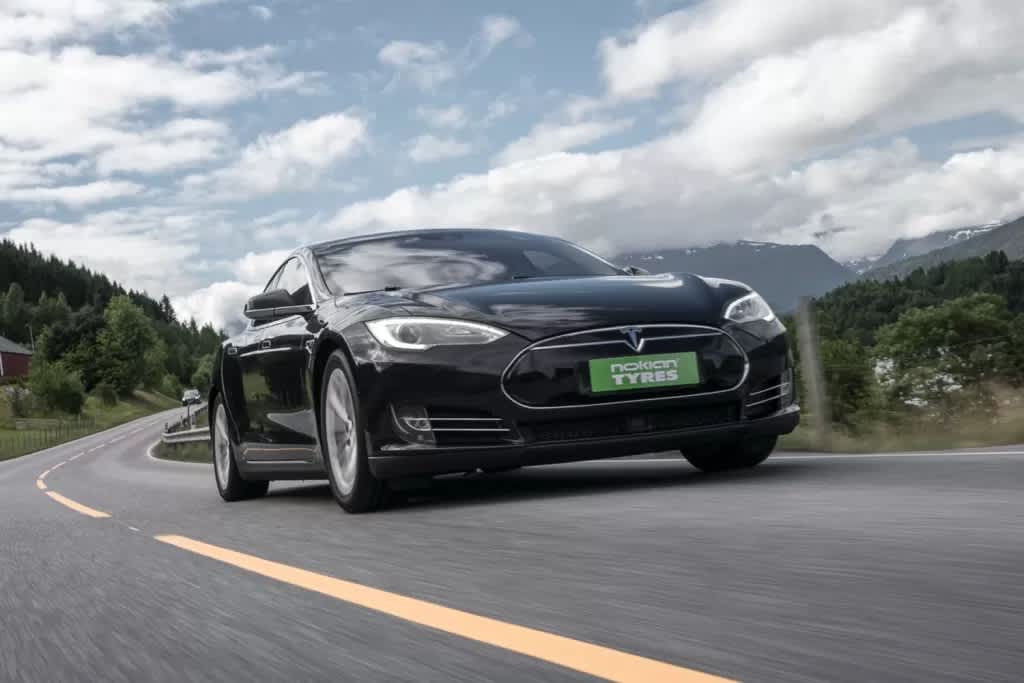
The tire industry stands at a crossroads where environmental responsibility meets automotive performance. Modern drivers increasingly seek products that align with their values while maintaining the safety and reliability they expect from their vehicles.
Green and environmentally friendly tires represent a significant shift in how manufacturers approach tire design and production. These innovative products combine sustainable materials with advanced engineering to reduce environmental impact without compromising road performance.
As fuel costs rise and environmental awareness grows, understanding eco-friendly tire options becomes essential for informed vehicle owners. The latest generation of sustainable tires offers compelling benefits that extend beyond environmental considerations to include improved fuel economy and long-term cost savings.
What Are Green & Environmentally Friendly Tires?
Green tires represent a fundamental rethinking of traditional tire manufacturing and design. These products incorporate sustainable materials, eco-conscious production methods, and innovative technologies that significantly reduce environmental impact throughout the tire's lifecycle — from raw material sourcing to eventual recycling.
The defining characteristic of environmentally friendly tires lies in their material composition. Manufacturers replace petroleum-based components with renewable alternatives such as soybean oil, sunflower oil, and natural rubber sourced from responsibly managed plantations. Some companies now experiment with rubber derived from dandelion roots and guayule shrubs, which require less water and land than traditional rubber trees. These bio-based materials reduce dependency on fossil fuels while maintaining the durability and performance drivers expect.
Low rolling resistance technology forms another crucial element of green tire design. Engineers develop special tread patterns and rubber compounds that minimize the energy required to keep tires moving. This reduction in rolling resistance translates directly to improved fuel efficiency for gas-powered vehicles and extended range for electric vehicles. Advanced silica compounds, often derived from rice husk ash — an agricultural waste product — enhance this efficiency while providing excellent traction in wet weather.
The manufacturing process itself transforms green tire production. Leading tire makers invest in renewable energy sources to power their facilities, implement water recycling systems, and adopt cleaner vulcanization processes that reduce harmful emissions. Many factories now operate under ISO 14001 environmental management certification, ensuring systematic approaches to minimizing ecological impact. These facilities often feature:
- Solar and wind power installations: Reducing reliance on fossil fuel-based electricity
- Waste heat recovery systems: Capturing and reusing energy that would otherwise be lost
- Zero-waste initiatives: Ensuring all production byproducts find useful applications
- Water conservation programs: Recycling and treating water used in manufacturing processes
The result is a product that delivers environmental benefits without sacrificing the performance, safety, and longevity that drivers demand. Modern green tires undergo the same rigorous testing as conventional tires, meeting or exceeding industry standards for traction, handling, and durability while contributing to a more sustainable future for transportation.
What Materials Are Used in Green Tires?
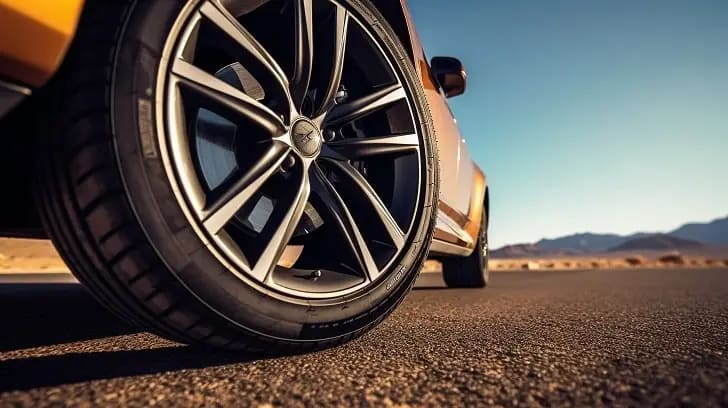
Sustainable Rubber Sources
Green tires revolutionize rubber sourcing by focusing on sustainability. They incorporate natural rubber from eco-friendly plantations, ensuring resources are managed responsibly. Manufacturers also explore innovative alternatives like rubber from desert-adapted plants, which thrive with minimal water, reducing the strain on natural ecosystems.
Recycling is key in creating advanced rubber compounds. By repurposing old tires, manufacturers decrease waste and lessen dependence on fresh raw materials. Additionally, the use of bio-engineered synthetic rubber, derived from renewable sources, replaces traditional petroleum-based components, minimizing environmental impact while maintaining tire performance.
Eco-Friendly Tire Components
The components of eco-friendly tires extend beyond rubber. Silica, an essential element, is now derived from agricultural byproducts like rice husk ash, transforming waste into a valuable resource. This method not only conserves energy but also supports sustainable agricultural practices.
Plant oils, such as those extracted from soybeans and other crops, replace conventional petroleum oils. These oils enhance tire flexibility and durability, contributing to longer-lasting products. Reinforcing materials also see a shift to sustainability, with the use of recycled metals reducing the need for new mining activities.
Furthermore, some green tires integrate polyester sourced from reused plastic bottles, highlighting an innovative approach to reducing plastic waste. By incorporating these materials, manufacturers create tires that align with circular economy principles, proving that sustainability and high performance can coexist seamlessly.
How Do Green Tires Benefit the Environment?
Green tires significantly contribute to environmental preservation by enhancing vehicle efficiency. Through innovative tread designs and advanced materials, these tires enable smoother motion, which leads to reduced fuel consumption. For traditional vehicles, this means fewer emissions, while electric cars achieve greater range, supporting eco-friendly driving practices.
The shift away from conventional materials is a cornerstone of green tire production. Incorporating plant-based and recycled substances reduces reliance on fossil fuels and supports ecological balance. This approach not only conserves resources but also aligns with global sustainability efforts, minimizing the overall ecological footprint.
Embracing a circular economy, green tire manufacturers focus on innovative recycling methods. By integrating repurposed materials into new tire production, waste is significantly decreased. Modern manufacturing techniques emphasize reduced energy use and emissions, ensuring that the production process itself remains environmentally conscious.
Addressing microplastic pollution, green tires incorporate cutting-edge compounds that resist wear, thereby limiting microplastic release. This proactive measure helps safeguard ecosystems by reducing pollutants in the air and water, contributing to a cleaner environment.
What Is Low Rolling Resistance and Why Does It Matter?
Understanding Rolling Resistance
Rolling resistance involves the effort required to keep tires moving forward. This force arises as tires deform and recover while in motion, with the rubber compound and tread design playing pivotal roles. By using innovative materials and designs, low rolling resistance (LRR) tires effectively decrease the energy needed for movement, enhancing vehicle efficiency.
Advanced engineering in LRR tires leads to reduced friction between the tire and road surface. This design innovation maintains safety and performance standards while allowing cars to travel further on less fuel. The result is a smoother driving experience with decreased fuel consumption, contributing to more sustainable transportation.
Benefits for Different Vehicles
Different vehicle types benefit uniquely from low rolling resistance technology. Traditional gasoline vehicles achieve greater fuel efficiency, leading to cost savings and reduced emissions. For electric vehicles, LRR tires extend the driving range by conserving battery energy, making them ideal for maximizing time between charges.
Hybrids benefit from optimized energy use in both electric and combustion modes, ensuring peak performance and efficiency. Commercial fleets experience notable reductions in fuel expenses, supporting eco-friendly operations and enhancing profitability. The integration of LRR tires across these vehicles signifies a significant advancement in automotive sustainability.
How Do Green Tires Perform Compared to Regular Tires?
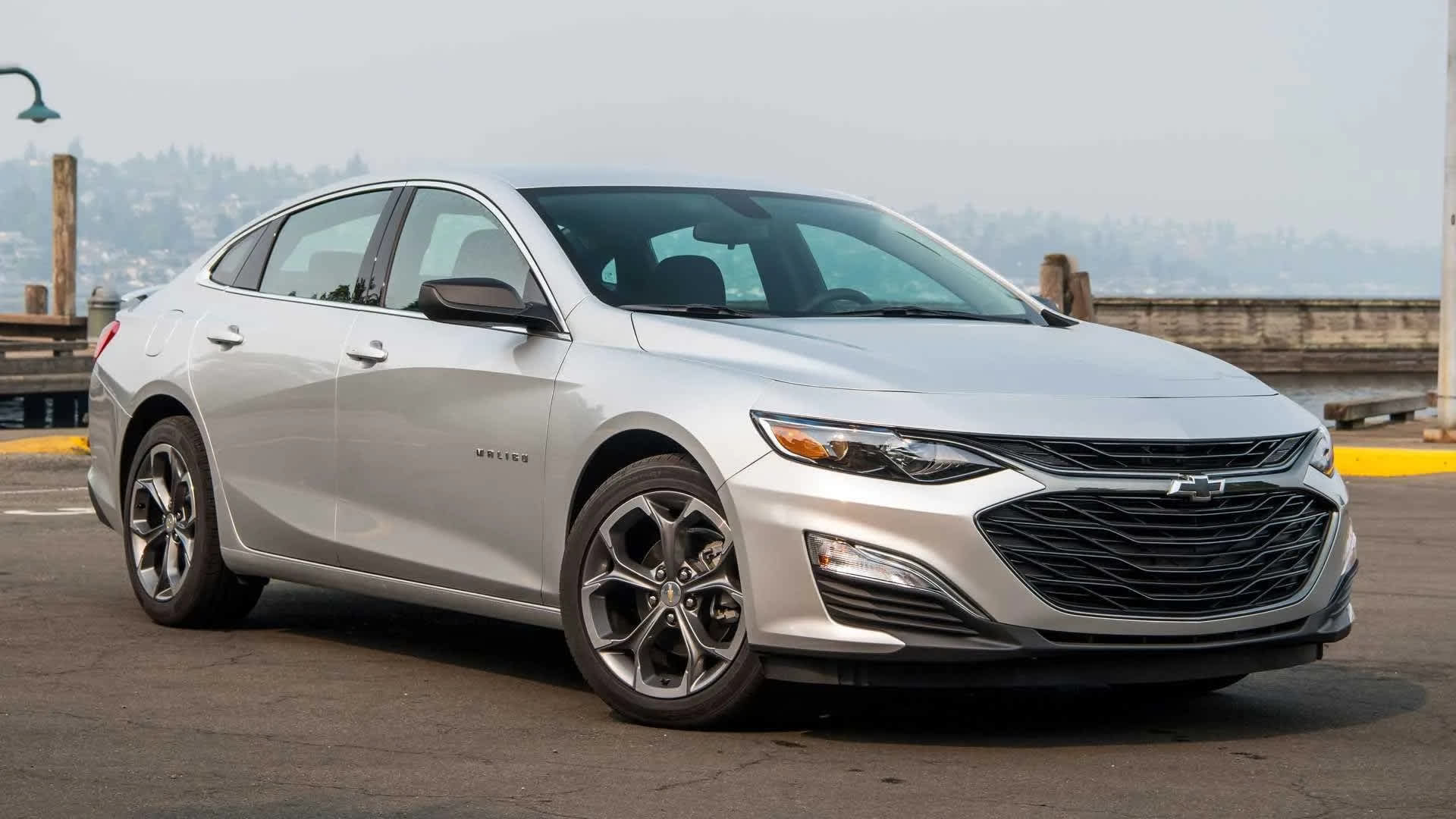
Green tires stand out for their ability to compete head-to-head with traditional options. Utilizing innovative materials and designs, they deliver impressive traction in various weather conditions. Natural rubber and eco-friendly compounds enhance grip, providing stability and confidence on both wet and dry roads.
Tread Life and Durability
The extended lifespan of green tires highlights their robust construction. Many models are engineered to last as long or longer than standard tires, reducing the need for frequent replacements. This durability supports environmental goals by conserving resources and minimizing waste throughout the tire's lifecycle.
Braking and Handling
Green tires offer reliable braking performance thanks to advanced formulations that maintain consistent stopping distances. Their design ensures smooth handling, making them suitable for everyday driving. With a focus on delivering a responsive and secure ride, these tires meet the demands of safety-conscious drivers.
What Green Manufacturing Processes Are Used?
Energy-Efficient Production
Green tire manufacturing transforms the way energy is used by integrating sustainable sources. Facilities often utilize solar arrays and wind turbines, drastically cutting their carbon footprint. This approach not only benefits the environment but also aligns with global initiatives for renewable energy adoption.
Advanced systems for capturing and reusing energy enhance production efficiency. By harnessing waste heat, manufacturers reduce their overall energy consumption, promoting a more sustainable operation. Water management strategies, including recycling and conservation, ensure minimal impact on natural resources, supporting a responsible manufacturing process.
Certification under environmental standards like ISO 14001 reflects a commitment to continuous improvement. These systems help manufacturers implement eco-friendly practices, focusing on reducing the environmental impact of their operations and enhancing sustainability.
Sustainable Manufacturing Innovations
The transition to using non-hazardous chemicals marks a significant advancement in tire production. Manufacturers replace traditional materials with safer alternatives, reducing the potential for environmental harm. This shift supports cleaner processes and adheres to stringent regulatory requirements.
Efforts to minimize emissions focus on reducing Volatile Organic Compounds (VOCs) through innovative methods. Cleaner vulcanization techniques require fewer chemicals, maintaining tire quality while advancing environmental goals.
Zero-waste initiatives ensure that production byproducts are repurposed, aligning with circular economy principles. By maximizing resource utilization and minimizing waste, these initiatives demonstrate a strong commitment to sustainability, transforming the way tire factories operate.
Which Tire Brands Offer Eco-Friendly Options?
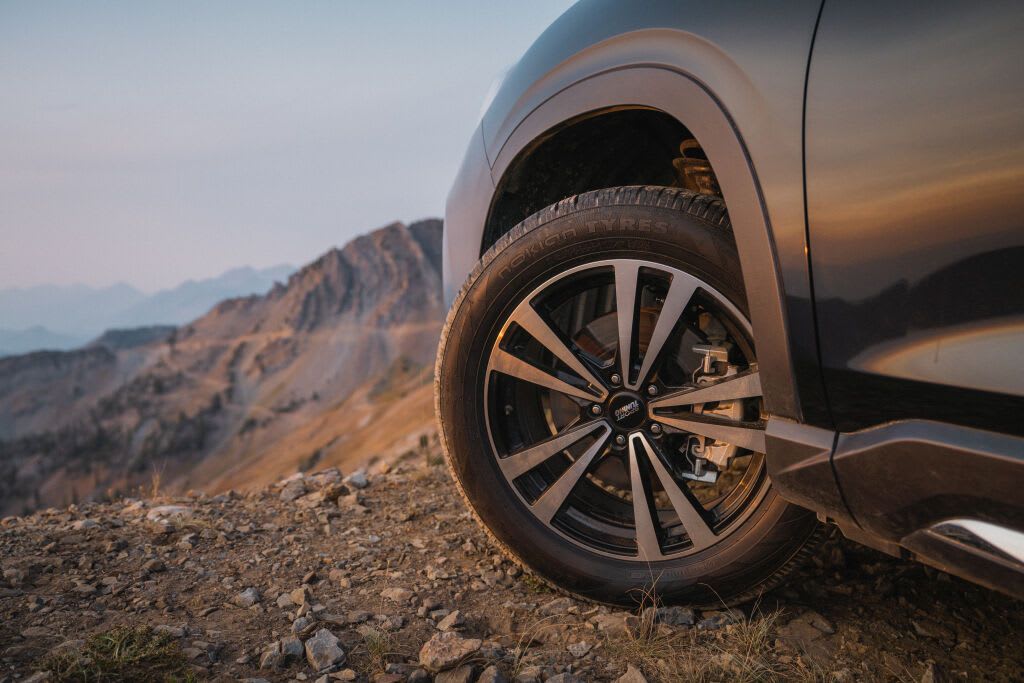
Leading tire brands are innovating with eco-friendly options, integrating advanced technology and sustainable practices. These companies prioritize reducing environmental impact while delivering products that meet high performance and safety standards.
Major Manufacturers and Innovations
Several prominent manufacturers have developed green tire lines to meet the demand for sustainability. By investing in renewable resources and innovative compounds, they lead the industry in eco-conscious design. Their initiatives include exploring plant-based materials and enhancing production efficiency.
Many companies have set ambitious goals for reducing carbon emissions by 2030-2050. This dedication drives ongoing advancements and propels the industry toward a sustainable future. Their efforts include:
- Innovative Material Research: Developing new materials to replace traditional rubber with eco-friendly alternatives.
- Environmentally Certified Processes: Implementing production methods that adhere to strict environmental guidelines.
Tire Recycling and Environmental Commitment
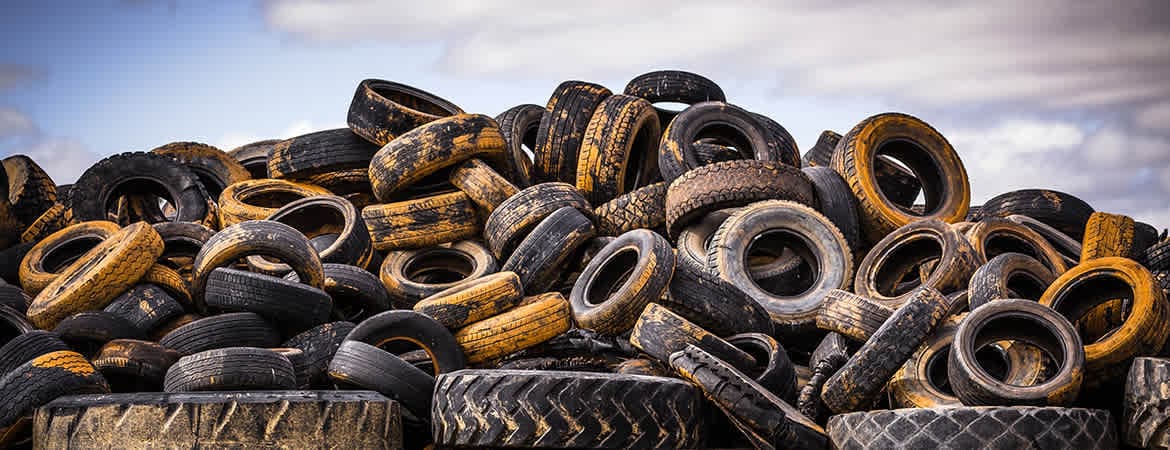
Top tire makers have established robust recycling initiatives, focusing on transforming used tires into valuable resources. These programs support waste reduction and promote sustainability by incorporating recycled content into new products.
Brands committed to environmental responsibility often use certified sustainable materials, ensuring that their sourcing and manufacturing practices minimize ecological impact. In addition, they invest in technologies that streamline production, further enhancing their environmental contributions.
How to Choose the Right Green Tires for Your Vehicle
Key Features to Look For
When selecting green tires, focus on features that ensure both eco-friendliness and performance. Prioritize tires with low rolling resistance; this feature enhances fuel efficiency by requiring less energy for movement, which benefits both gas and electric vehicles.
Sustainable material certifications affirm the use of eco-conscious materials. These certifications highlight the manufacturer's dedication to reducing environmental impact. It's important to verify load and speed ratings, ensuring compatibility with your vehicle's specifications for safe and effective performance.
Consider warranty coverage and tread life guarantees, which reflect the tire's expected durability. These assurances suggest a commitment to quality and sustainability by reducing the need for frequent replacements, ultimately supporting long-term environmental goals.
Reading Tire Labels
Understanding tire labels is essential for informed choices. Look for markings that identify eco-friendly attributes such as energy-saving capabilities and sustainable materials. These labels guide you toward tires that align with environmental priorities.
Fuel efficiency ratings provide insight into how well the tires can improve your vehicle's performance. High ratings indicate significant fuel savings and lower emissions. Checking for environmental certifications confirms adherence to industry standards, reinforcing the tire's green credentials.
Comparing rolling resistance grades helps you assess potential energy savings. Lower grades mean less energy is needed to keep the tires moving, enhancing efficiency. Evaluating wet grip performance ensures the tires maintain safety and traction in various conditions, supporting everyday driving needs.
As environmental consciousness continues to shape automotive choices, green tires offer a practical way to reduce your carbon footprint without sacrificing performance or safety. The technology and materials used in eco-friendly tires have evolved to meet the demands of modern drivers while supporting a more sustainable future.
Ready to make the switch to environmentally friendly tires? We make it easy to shop for tires online and find the best deals that match your vehicle and values, helping you drive toward a greener tomorrow.
Ready to find the perfect tires?
Search By